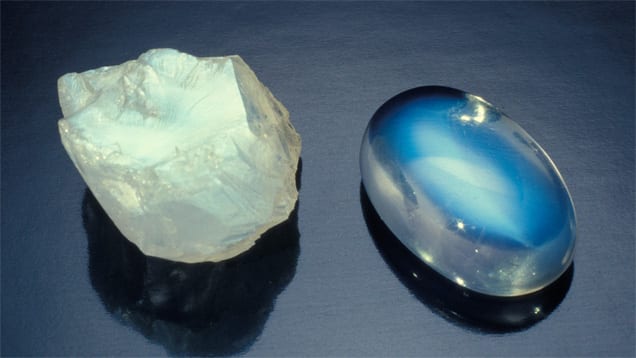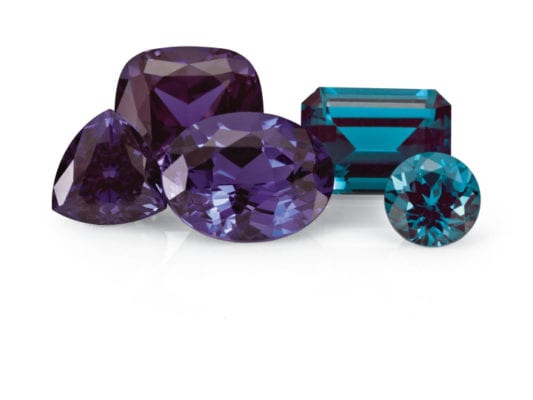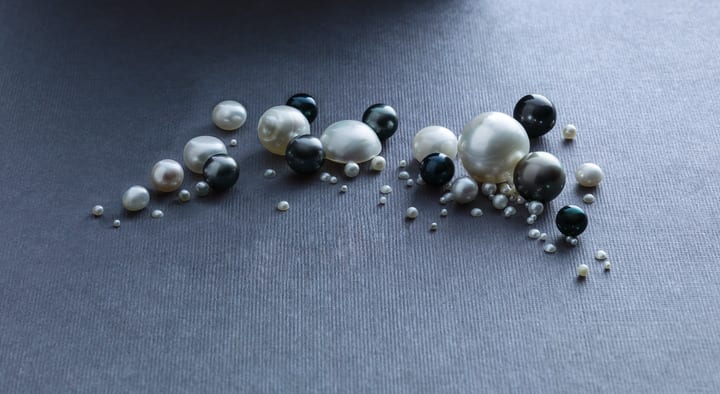Lucky you, June babies! You have not one, not two, but THREE lovely gemstones to choose from as your birthstone. Most consider pearls as the primary birthstone for the month of June, while Moonstone and Alexandrite are alternatives. All of these stones are rich in their own unique beauty and history. Keep reading to find out more about your lovely birthstones and why you get more than one.
Why are there three June birthstones?
The Jewelers of America put together the first official list of birthstones in 1912, listing only Pearl and Moonstone for June. It wasn’t until 1952 that Alexandrite was added to the June birthstone list. We guess three was just the lucky number for June!
Pearl

Like other gemstones, pearls form naturally, slowly for as long as two decades. Unlike other gemstones, mollusks, such as oysters and clam create pearls. Depending on what part of the world the mollusk is from, it changes the pearl type. Due to their rarity and difficulty to find, natural pearls have remained an expensive stone since ancient times. They were revered among royalty and nobility alike and symbolized purity, integrity and love.
Moonstone

When we say “gemstone,” moonstone may not be the first one that comes to mind. They aren’t as popular as pearls, but we think they are a modern, beautiful alternative. Their adularescence is the first thing you’ll notice in the moonstone. According to GIA, “adularescence is the light that appears to billow across a gemstone, giving its surface a glowing appearance.” Visually, the glow has a moon-like quality, which is where the name moonstone comes from. In the picture above, you can see a moonstone both in its rough form and polished.
FUN FACT: The moonstone is the Florida State Gemstone to commemorate the moon landings that took off from Kennedy Space Center.
Alexandrite

The Alexandrite is one of the newer gemstone discoveries. It was discovered in the Russian Ural Mountains in 1830 and wasn’t added to the birthstone list until 1952. Known as the chameleon of the gemstone family, it’s an “emerald by day, ruby by night” due to its color-changing tendencies. It’s bluish-green in daylight and reddish-purple in lower light. Due to its toughness on the Mohs scale, it makes a great option for rings or bracelets. Just be sure to clean it with warm, soapy water.
If you enjoy our gemstone spotlights, follow us on this blog, Instagram and Facebook. Did you miss our May Birthstone Spotlight? Check it out here!

